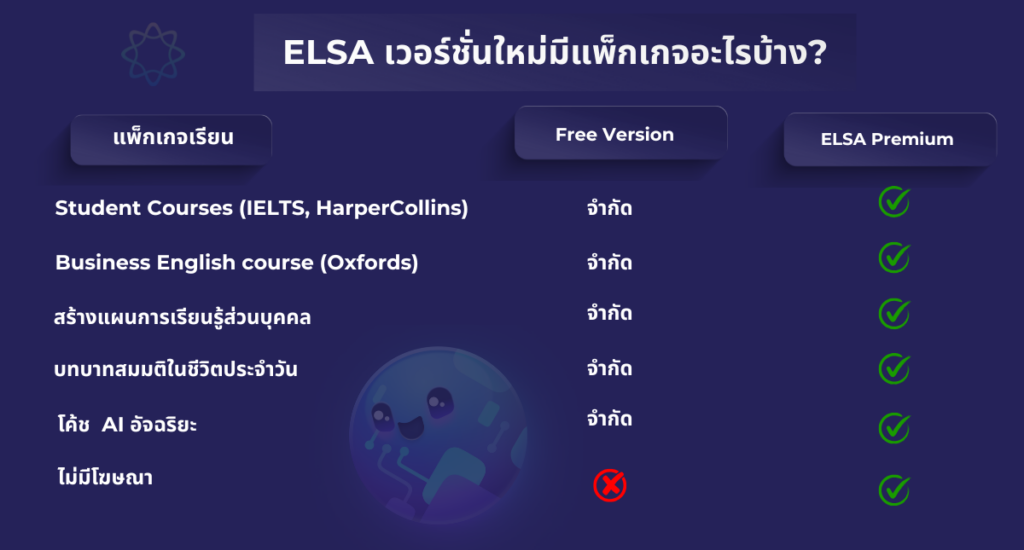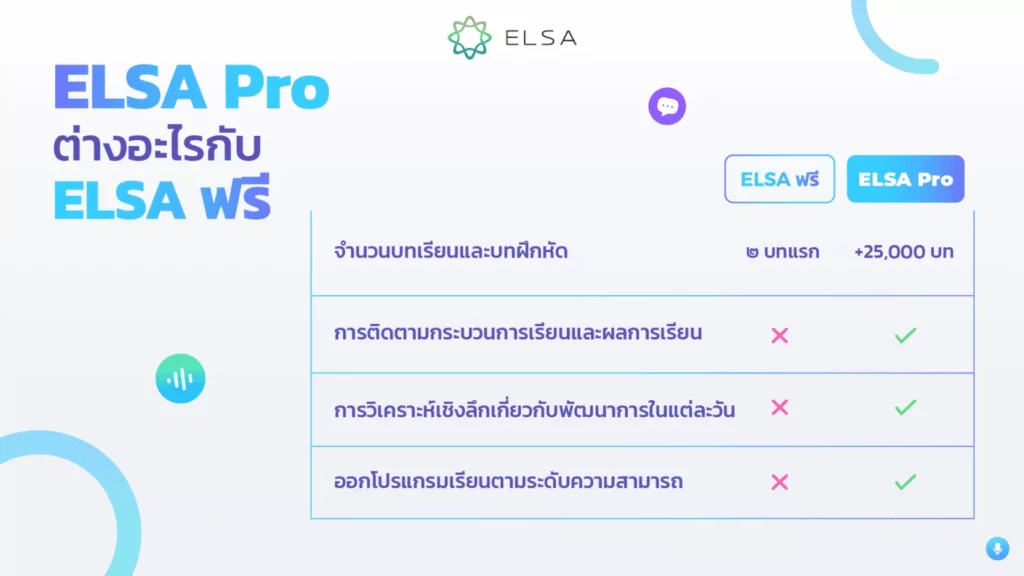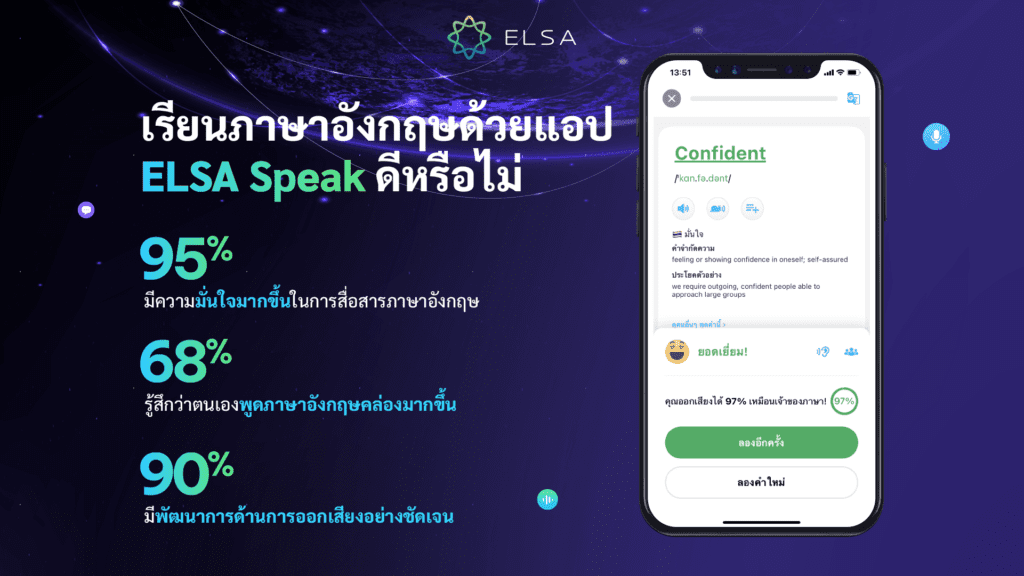Relative clause คือ? Relative Clause เป็นความรู้ที่สำคัญในเรื่องของไวยากรณ์ของอนุประโยคในภาษาอังกฤษ ดังนั้น บทความต่อไปนี้จะวิเคราะห์อย่างละเอียดเพื่อให้ผู้เรียนมีความเข้าใจพื้นฐานและนำไปใช้ได้อย่างถูกต้อง ผู้เรียนควรฝึกทำแบบฝึกหัดในบทเรียนด้วยเพื่อจับใจความได้ดีขึ้น
นิยาม Relative Clause คืออะไร?
อนุประโยคสัมพัทธ์ – Relative Clause เป็น อนุประโยคไม่อิสระประเภทหนึ่ง ที่มีหัวเรื่องและกริยา แต่ไม่สามารถอยู่เดี่ยวเป็นประโยคได้ บางทีถูกเรียกว่าประโยคคำคุณศัพท์ (Adjective Clause) เพราะทำหน้าที่เหมือนกับคำคุณศัพท์ ก็คือ ขยายความหมายให้แก่คำนามในประโยค โดย Relative Clause จะขึ้นต้นด้วยคำสรรพนามสัมพัทธ์เสมอ (Relative Pronoun)
สอบก่อนเข้าฟรี

ประเภทของ Relative Clause ในภาษาอังกฤษ
Relative Clause แบ่งออกเป็น 2 ประเภทหลัก ได้แก่
- Defining Relative Clause
- Non-defining Relative Clause

Defining Relative Clause คือ
หน้าที่:
- Defining Relative Clause ประกอบด้วยข้อมูลที่อธิบายคำนามที่นำหน้าให้ชัดเจน ความหมายของประโยคจะไม่ครบหากไม่มี Defining Relative Clause
- ไม่มีเครื่องหมายจุลภาค “,”
Defining Relative Clause ตัวอย่าง: The man who is sitting next to you is handsome. (ผู้ชาย คนที่นั่งข้างคุณหล่อจังเลย)
ถ้าไม่มี Relative Clause “who is sitting next to you” ก็จะไม่สามารถระบุได้ว่า “the man” คือใคร
Non-defining Relative Clause
หน้าที่:
- Non-defining Relative Clause เพิ่มข้อมูลเพิ่มเติมให้คำนามที่อยู่ข้างหน้า ความหมายของประโยคยังครบหากไม่มี Non-defining Relative Clause
- มีเครื่องหมายจุลภาค “,”
Non-defining Relative Clause ตัวอย่างประโยค: Rosie, who is sitting next to you, is beautiful. (โรซี่ คนที่นั่งข้างคุณ สวยจังเลย)
ถ้าไม่มี Relative Clause “who is sitting next to you” Rosie ยังคงเป็นคำนามที่ระบุได้
คำสรรพนามสัมพัทธ์ (Relative Pronouns)
คำสรรพนามสัมพัทธ์ (Relative Pronouns) เริ่มต้น Relative Clause โดย Relative Pronouns ที่ผู้เรียนใช้ขึ้นอยู่กับวัตถุที่ผู้เรียนกำลังอ้างถึงและประเภทของ Relative Clause การแยกความแตกต่างระหว่าง Relative Pronouns จะขึ้นอยู่กับหน้าที่ในประโยค
Who
- Who คือ Defining Relative Clause และ Non-defining Relative Clause
- ใช้แทนคำนามที่พูดถึงคน และบางครั้งแทนคำนามที่พูดถึงสัตว์เลี้ยง ทำหน้าที่เป็นหัวเรื่อง
ตัวอย่าง: The boy who is wearing a green jacket is my younger brother. (เด็กผู้ชาย คนที่สวมแจ็คเก็ตสีเขียวคือน้องชายของฉัน)
ใน Relative Clause “who is wearing a green jacket”, Relative Pronouns “who” แทนให้ “the boy” และทำหน้าที่เป็นหัวเรื่องในประโยค
Whom
- คือ Defining Relative Clause และ Non-defining Relative Clause
- ใช้แทนคำนามที่พูดถึงคน และทำหน้าที่เป็นกรรม
ตัวอย่าง: Mei likes the man whom I met at the party last night. (เมย์ชอบผู้ชายที่ฉันเจอในงานปาร์ตี้เมื่อคืนนี้)
ใน Relative Clause “whom I met at the party last night”, Relative Pronouns “whom” แทนให้ “the man” ทำหน้าที่เป็นกรรม ที่ตรงกับหัวเรื่อง “I” และกริยา “met”

Which
- คือ Defining Relative Clause และ Non-defining Relative Clause
- ใช้แทนคำนามที่ระบุสิ่งของ ทำหน้าที่เป็นหัวเรื่องหรือกรรม
ตัวอย่าง: We have seen a lot of changes which are good for business.
ใน Relative Clause “which are good for business”, Relative Pronouns “which” แทนให้ “changes” – คำนามที่ระบุสิ่งของ ทำหน้าที่เป็นหัวเรื่องในประโยค
ตัวอย่าง: It was the same picture which I saw yesterday. (นั่นคือภาพที่ฉันเห็นเมื่อวานนี้)
ใน Relative Clause “which I saw yesterday”, Relative Pronouns “which” แทนให้ “the same picture” – คำนามที่ระบุสิ่งของ ทำหน้าที่เป็นกรรมในประโยค ที่ตรงกับหัวเรื่อง “I” และกริยา “saw”
- ใช้แทนความหมายของทั้งอนุประโยคก่อนหน้า และคั่นด้วยเครื่องหมายจุลภาค
ตัวอย่าง: Lisa got the low mark in the Math, which made her parents sad. (ลิซ่าได้คะแนนต่ำในวิชาคณิตศาสตร์ ซึ่งทำให้พ่อแม่ของเธอเสียใจมาก)
ใน Relative Clause “which made her parents sad”, Relative Pronouns “which” ที่นี่ไม่เพียงแทนให้ “low mark in the Math” เพราะคะแนนต่ำในวิชาคณิตศาสตร์ไม่ได้ทำให้พ่อแม่ของลิซ่าเสียใจ แต่เรื่องลิซ่าได้คะแนนต่ำในวิชาคณิตศาสตร์ทำให้พ่อแม่ของลิซ่าเสียใจ ดังนั้น “which” จะแทนให้ทั้งอนุประโยคที่นำหน้ามัน
That
- คือ Defining Relative Clause
ใช้แทน “who”, “whom”, “which” ใน Relative Clause ที่ระบุคน สัตว์ และสิ่งของ That ได้ใช้ใน Defining Relative Clause เท่านั้น That จะเป็นทางการน้อยกว่า “who”, “whom” และ “which”
ตัวอย่าง:
- The boy who/that is wearing a green jacket is my younger brother. (เด็กผู้ชาย คนที่สวมแจ็คเก็ตสีเขียวคือน้องชายของฉัน)
- It was the same picture which/that I saw yesterday. (นั่นคือภาพที่ฉันเห็นเมื่อวานนี้)
- Mei likes the man whom I met at the party last night. (เมย์ชอบผู้ชายที่ฉันเจอในงานปาร์ตี้เมื่อคืนนี้)
Whose
- คือ Defining Relative Clause – Relative Pronouns แทนที่คำแสดงความเป็นเจ้าของ
- ใช้แทนคำแสดงความเป็นเจ้าของของคนหรือสิ่งของในประโยค ดังนั้น whose มักจะอยู่ข้างหน้าคำนาม
ตัวอย่าง: He’s marrying a girl whose family don’t seem to like him. (เขากำลังจะแต่งงานกับหญิงสาว ที่ดูเหมือนครอบครัวของเธอจะไม่ชอบเขา)
ใน Relative Clause “whose family don’t seem to like him”, Relative Pronouns “whose” ใช้แทนคำแสดงความเป็นเจ้าของ “her” – ของเธอ
เพื่ออธิบายหน้าที่ของ Whose ผู้เขียนจะวิเคราะห์ประโยคดังนี้: “family” เป็นหัวเรื่อง, กริยาคือ “don’t like”, กรรมคือ “him” และคำที่จะแทนที่คือ “girl”. คำนามที่อยู่ข้างหลังคือ “family” และถ้าเขียนครบก็จะเป็น “her family or the girl’s family” ดังนั้นประโยคนี้จึงขาดความเป็นเจ้าของ และ “whose” ทำหน้าที่แทนความเป็นเจ้าของในประโยคนี้
คำกริยาวิเศษณ์เชื่อมอนุประโยค (Relative adverbs)
Where
- ใช้แทนคำและวลีที่ทำหน้าที่เป็นคำวิเศษณ์ระบุสถานที่ในประโยค
ตัวอย่าง: I know a restaurant where the food is excellent. (ฉันรู้จักร้านอาหารที่อาหารอร่อยมาก)
ใน Relative Clause “where the food is excellent.”, Relative Pronouns “where” แทนให้คำวิเศษณ์ที่ระบุสถานที่ “in the restaurant” เพราะประโยคนี้ถ้าเขียนครบก็จะเป็น “the food in the restaurant is excellent” ดังนั้น “where” ที่นี่จึงไม่ใช่แค่ใช้แทน “restaurant” แต่ใช้แทนทั้งวลีที่ระบุสถานที่ “in the restaurant”
When
- ใช้แทนคำและวลีที่ทำหน้าที่เป็นคำวิเศษณ์ระบุเวลาในประโยค
ตัวอย่าง: 17th of June, 1995 is the day when I was born. (วันที่ 17 มิถุนายน พ.ศ. 2538 เป็นวันที่ฉันเกิด)
ใน Relative Clause “when I was born”, Relative Pronouns “when” แทนให้คำวิเศษณ์ที่ระบุเวลา “on 17th of June, 1995” เพราะประโยคนี้ถ้าเขียนครบก็จะเป็น “I was born on 17th of June, 1995” ดังนั้น “when” ที่นี่ใช้แทนทั้งวลีที่ระบุเวล “on 17th of June, 1995”
Why
- ใช้แทนคำวิเศษณ์ระบุเหตุผล
ตัวอย่าง: Do you know the reason why the shop is closed today? (คุณรู้ไหมว่า ทำไมวันนี้ร้านปิด?)
ใน Relative Clause “why the shop is closed today?”, Relative Pronouns “why” แทนให้วลีระบุเหตุผล “for the reason” เพราะประโยคนี้ถ้าเขียนครบก็จะเป็น “Do you know the reason. The shop is closed today for that reason.”
สรรพนามสัมพัทธ์คู่
สรรพนามสัมพัทธ์คู่เป็นสรรพนามสัมพัทธ์ที่ใช้กับหน้าที่คู่:
- ทำหน้าที่เป็นหัวเรื่อง กรรม หรือคำวิเศษณ์ในอนุประโยคของประโยค
- ทำหน้าที่เป็นคำสันธานเชื่อมระหว่างอนุประโยคที่มีสรรพนามสัมพัทธ์คู่กับส่วนที่เหลือของประโยค
Whoever (ใครก็ตาม)
- ใช้แทนบุคคล โดยมีหน้าที่อย่างน้อยอย่างหนึ่งคือ หัวเรื่อง
ตัวอย่าง: Whoever comes to see me, ask them to wait. (ใครก็ตามที่มาหาฉัน ก็บอกให้รอ)
ใน Relative Clause “Whoever comes to see me”, “whoever” ทำหน้าที่เป็นหัวเรื่องของประโยค และยังทำหน้าที่เป็นคำเชื่อมเพื่อเชื่อมอนุประโยค “Whoever comes to see me” กับส่วนที่เหลือของประโยค
Whomever (ใครก็ตาม)
- ใช้แทนบุคคล โดยมีหน้าที่อย่างน้อยอย่างหนึ่งคือ กรรม
ตัวอย่าง: Whomever you hire will be fine with me. (ใครก็ตามที่คุณจ้างก็จะดีสำหรับฉัน)
ใน Relative Clause “Whomever you hire”, Relative Pronouns “whomever” แทนให้กรรมที่ตรงกับหัวเรื่อง “I” และกริยา “hire” และเป็นคำเชื่อมเพื่อเชื่อม “you hire” กับส่วนที่เหลือของประโยค
Whichever (ไม่ว่าอันไหนก็ตาม)
- ใช้แทนกรรม หัวเรื่องระบุวัตถุที่มีตัวเลือก
ตัวอย่าง: Whichever train you take from here, you will end at Charing Cross station. (ไม่ว่าคุณจะขึ้นรถไฟขบวนไหนจากที่นี่ คุณจะไปสิ้นสุดที่สถานี ชาริ่งครอส)
ใน Relative Clause “Whichever train you take from here”, Relative Pronouns “whichever” แทนให้กรรม “train” ที่ตรงกับหัวเรื่อง “you” และกริยา “take” และเป็นคำเชื่อมเพื่อเชื่อม “you take from here” กับส่วนที่เหลือของประโยค
Whatever (อะไรก็ตาม)
- ใช้แทนกรรม หัวเรื่องระบุวัตถุ
ตัวอย่าง: Pinkie will be successful at whatever she chooses to do in life. (Pinkie จะประสบความสำเร็จไม่ว่าเธอจะเลือกทำอะไรก็ตาม)
ใน Relative Clause “Whatever she chooses”, Relative Pronouns “whatever” แทนให้กรรมอยู่ในอนุประโยคนำหน้า ที่ตรงกับหัวเรื่อง “Pinkie” และกริยา “will be successful at” แล้วก็เป็นกรรมของอนุประโยคด้านหลัง ตรงกับหัวเรื่อง “she” และกริยา “chooses to do”
Whenever (เมื่อไหร่ก็ตาม)
- ใช้แทนคำวิเศษณ์ที่ระบุเวลา
ตัวอย่าง: Whenever it rains, I stay indoors. (เมื่อไหร่ก็ตามที่ฝนตก ฉันจะอยู่ในบ้าน)
ใน Relative Clause “Whenever it rains”, Relative Pronouns “whenever” แทนให้คำวิเศษณ์ที่ระบุเวลา และเป็นคำเชื่อมเพื่อเชื่อม “it rains” กับส่วนที่เหลือของประโยค
Wherever (ที่ไหนก็ได้)
- ใช้แทนคำวิเศษณ์ที่ระบุสถานที่
ตัวอย่าง: Wherever you go, I will follow you. (ไม่ว่าคุณจะไปที่ไหนก็ตาม ฉันจะตามคุณไป)
ใน Relative Clause “Wherever you go”, Relative Pronouns “wherever” แทนให้คำวิเศษณ์ที่ระบุสถานที่ และเป็นคำเชื่อมเพื่อเชื่อม “you go” กับส่วนที่เหลือของประโยค
หมายเหตุ: ในคำพูดที่ไม่เป็นทางการ คำเชื่อมเหล่านี้บางครั้งใช้เป็นคำตอบสั้นๆ
ตัวอย่าง:
- ‘When should I come?’ ‘Whenever‘. (= Whenever you like)
- ‘Tea or coffee?’ ‘Whichever’. (= I don’t mind.)

การลดรูป Relative Clause (Reduced Relative clause)
Relative Clause สามารถลดรูปให้สั้นลง ซึ่งทำให้ผู้เรียนรับรู้และวิเคราะห์ความหมายของประโยคได้ยากขึ้น
รูปแบบการลดรูปของ Relative Clause ที่พบบ่อยที่สุด 2 รูปแบบ ได้แก่
- ลดรูปในรูปแบบ Present Participle (V-ing)
- ลดรูปในรูปแบบ Past Participle (V3/V-ed)

ลดรูปในรูปแบบ Present Participle (V-ing)
ถ้ากริยาของ Relative Clause ในกรณีที่หัวเรื่องกระทำกริยานั้น สามารถละ Relative Pronouns ได้ และกริยาก็จะได้ผันในรูปแบบ Present Participle (V-ing)
ตัวอย่าง: The professor who teaches English Literature is leaving our university.
วิธีลดรูป: The professor who teaches -> teaching English Literature is leaving our university.
→ The professor teaching English Literature is leaving our university.
ลดรูปในรูปแบบ Past Participle (V3/V-ed)
ถ้ากริยาของ Relative Clause ในรูป passive form (be + V3/V-ed) Relative Pronouns และ “be” สามารถละทิ้งได้ และกริยายังคงอยู่ในรูปแบบ Present Participle (V3/V-ed).
ตัวอย่าง: The candidates who were chosen after the interview will have a field trip to our company.
วิธีลดรูป: The candidates who were chosen after the interview will have a field trip to our company.
→ The candidates chosen after the interview will have a field trip to our company.
หมายเหตุบางอย่างในการใช้ Relative Clause
1. ใช้ that ในโครงสร้างประโยคตายตัว
ตัวอย่าง:
- เมื่อมีคำนามผสมระบุผู้คนและสิ่งของ
→ He and his dog that have been together for 10 years are very famous in my hometown. (เขาและสุนัขของเขาที่อยู่ด้วยกันมา 10 ปีแล้ว พวกเขามีชื่อเสียงมากในบ้านเกิดของฉัน)
- ใช้กับคำนามไม่จำกัด: nothing, everything, something
→ She blamed herself for everything that had happened. (เธอโทษตัวเองสำหรับทุกสิ่งที่เกิดขึ้น)
- ใช้กับการเปรียบเทียบสูงสุด:
→ The Wimbledon men’s final was the best game of tennis that I’ve ever seen. (การแข่งขันเทนนิสวิมเบิลดันชายรอบชิงชนะเลิศเป็นการแข่งขันเทนนิสที่ดีที่สุดที่ฉันเคยเห็นมา)
2. หมายเหตุ: แยกแยะ Relative Pronouns: ใส่ Relative Pronouns ไว้ข้างคำนามที่มันแทนที่เสมอเพื่อหลีกเลี่ยงการทำให้เกิดความเข้าใจผิดและความกำกวมโดยไม่จำเป็น
ตัวอย่าง:
- ผิด: I wore a ghost costume on Halloween Day, which is so scary.
- ถูกต้อง: I wore a ghost costume which is so scary on Halloween Day. (ฉันสวมชุดผีที่น่ากลัวมากในวันฮัลโลวีน)
ในประโยคที่ผิด ผู้อ่านอาจไม่สามารถแยกแยะหรือเข้าใจผิดว่า “วันฮัลโลวีนที่น่ากลัว” แทนที่จะเป็น “ชุดผีที่น่ากลัว” ดังนั้น เพื่อเพิ่มความชัดเจน ให้ใส่ Relative Pronoun ตามหลังคำนามที่มันจะแทนที่
3. Relative Clause ที่เพิ่มข้อมูลเพิ่มเติมให้คำนาม (วลี) คำไหน จะต้องอยู่หลังคำนาม (วลี) คำนั้น
4. ในประโยคเชิงซ้อนที่ใช้ Relative clause จะต้องมี independent clause และ dependent clause

5. ตรวจสอบให้แน่ใจว่า แต่ละอนุประโยคมีหัวเรื่องและกริยา/กริยาวลีเพียงพอ และสามารถจัดเรียงใหม่เป็นประโยคเดี่ยวที่มีความหมาย

ตัวอย่าง:
- That is the man who lives next door to me.
- My grandmother, who has just turned 80, is very healthy and active.
แบบฝึกหัด Relative Clause พร้อมเฉลย
แบบฝึกหัดที่ 1: เลือกคำตอบที่ถูกต้องที่สุดสำหรับแต่ละประโยคต่อไปนี้
1. He was taking exercises ____ handed by her teacher.
A.which
B. who
C. who
D. whom
2. The kid, ____ stole the car, was hiding in the building.
A. that
B. who
C. whom
D. which
3. My uncle has started a new company ____ make him a millionaire.
A. whose
B. Who
C. Whom
D. Which
4. Do you know the girl ____ we saw at the birthday party last year?
A. which
B. whose
C.who
D. whom
5. The exercise that we were taught ____ very difficult.
A. is
B. has been
C. are
D. was
6. The neighbor _____ in front of me kept chatting during the workshop,_____ annoy me very much
A. had sat/ who
B. sitting/ which
C. to sit/ that
D. sitting/ that
7. Was Manchester United stadium the largest ____ in the world?
A. to be built
B. which was built
C. built
D. build
8. This is the city in _____ my friends have moved to live since 2016.
A. which
B. who
C. whose
D. where
9. Her grandfather,____ was loved by neighbor , is a popular actor.
A. who
B. that
C. where
D. which
10. The structure site, _____ is constructed in a large area, is very famous.
A. of which
B. which
C. who
D. whom
เฉลย:
| 1 | 2 | 3 | 4 | 5 | 6 | 7 | 8 | 9 | 10 |
| A | B | D | D | D | B | A | A | A | A |
แบบฝึกหัดที่ 2: ค้นหาข้อผิดพลาดในประโยค
- The boy whose I saw last night was very handsome.
- The Spanish actor, which has disabilities, can also speak France.
- After a terrible night, the boy next door who I told you will move to a new place.
- The International Holiday is the time which adolescence be off from work for 4 days.
- Do you understand the reason which he made that decision?
- The man who him told me this morning was absolutely a genius.
- The person which I admire appeared on TV this afternoon.
เฉลย:
- whose
- which
- who
- which
- which
- him
- which
แบบฝึกหัดที่ 3: เขียนประโยคใหม่เพื่อย่อ Relative Clause
- The construction site was constructed on the lake. It provides a large area for entertainment.
- Have you ever had a conversation with him? He is standing at the table.
- I learned to use this tool when I was young. This tool helps me alot in my work
- She came from the countryside. The place is located near the sea.
- The dishes were so tasty. I had it all in 20 minutes.
เฉลย:
- The construction site was constructed on the lake, which provides a large area for entertainment.
- Have you ever had a conversation with the man who is standing at the table?
- I learned to use this tool, which helps me a lot in my work when I was young.
- She came from the countryside which is located near the sea.
- The dishes were so tasty that I had it all in 20 minutes.


บทสรุป Relative Clause
Relative Pronouns เป็นความรู้ชิ้นสำคัญที่ช่วยให้ผู้เรียนเข้าใจ Relative Clause ได้อย่างลึกซึ้งและชัดเจนยิ่งขึ้น ผู้เขียนได้วิเคราะห์ตามหน้าที่ของ Relative Pronouns ใน Relative Clause เพื่อให้ผู้เรียนมีความรู้พื้นฐานในการทำความเข้าใจและนำไปใช้ Relative Pronouns ได้อย่างถูกต้อง






